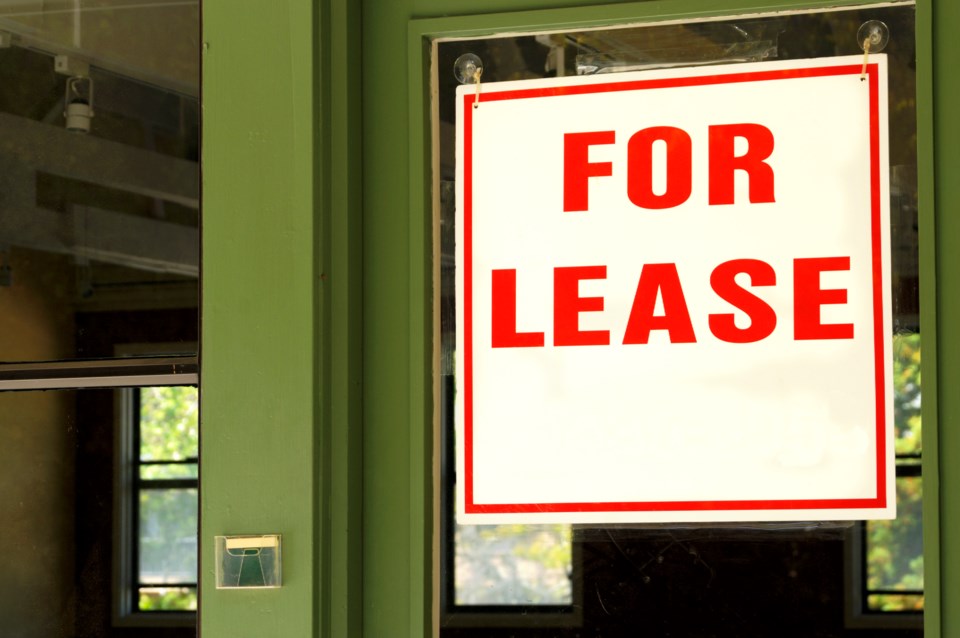The City of New Westminster is modernizing its approach to business licences.
The city expects to have a new business licence bylaw in place in early November, after staff do further consultation with community members about the changes being proposed to modernize the bylaw.
Mayor Patrick Johnstone said staff previously consulted with the community about the proposed changes, which are intended to simplify the city’s business license bylaw. Those recommendations will now go out to the community for input before council considers a bylaw in October.
“We can bounce them off the businesses and make sure that the community understands changes before it comes back to council for adoption,” he said at the Sept. 9 council meeting.
According to a staff report, the City of New Westminster issues licences to about 4,000 businesses annually, including more than 160 different types of businesses, trades, and professions.
The staff report explained that the reassignment of business licensing functions to the economic development division gave the city an opportunity to ensure its approach to business licensing reflects the current and evolving business environment.
Simplifying and streamlining operational processes, providing tools and processes that promote and reward compliance, developing efficiencies for business applicants and city staff, and reducing regulatory burden are the focus of the economic development division’s approach to business licensing, said the report.
Coun. Ruby Campbell, who chairs the arts, culture, and economic development advisory committee, thanked staff for undertaking this “onerous” but important work. She pointed out that the report includes information showing how New Westminster compares to other municipalities when it comes to business licensing.
Campbell encourages anyone who is interested in the business licence bylaw modernization to email [email protected] for details about the Phase 2 consultation. She said community members can attend focus group sessions on Wednesday, Sept. 18 from 8 to 9:30 a.m. and Thursday, Sept. 19 from 6 to 7:30 p.m.
“You're going to have a chance to weigh in on these recommendations,” she said.
Proposed changes
A report to council outlined the changes being proposed for the City of New Westminster’s business licence fees. These include:
- Adjusting all 2024 business licence fees to the nearest whole number, based on a three per cent estimated rate of inflation, with exceptions to commercial vehicle fees for taxis and inter-municipal business licence fees.
- Reducing certain liquor licensing fees to reflect the workload for processing these applications and to better align with other similar municipalities.
- Considering conditional licensing that would allow businesses deemed to be low risk to open, operate and generate revenue, while working to complete minor, but outstanding business deficiencies. These situations would require the support of the city’s chief building inspector.
According to the staff report, licensing of non-profits is also being recommended for New Westminster.
“Enhanced transparency and clarity around licensing requirements for non-profits is being added to the bylaw,” said the report. “While no fee is charged for these uses, provision of business licences assists the city and stakeholders (e.g., business improvement associations) with data and knowledge as to the full spectrum of businesses and services provided in the community. Wording has been incorporated to reflect and define non-profits within the new bylaw.”
Coun. Daniel Fontaine welcomed the licensing of non-profits.
“I think that's a very smart move,” he said. “We have a lot of non-profits in the city and are growing in terms of the overall number of non-profits. And to not have them licensed, it's really hard for us to do any kind of data collection and quantify how many and the contribution that they're making.”
In a 5-0 vote, council unanimously support the staff recommendation to move on to the “next steps” outline in the report, including two virtual focus group session and emails to business organizations and residents’ associations outlining the opportunities for feedback.
Coun. Paul Minhas recused himself from the discussion, noting he would be in a conflict of interest as he has a business license in New Westminster.
City comparisons
Fontaine said he is grateful to staff for pulling the new bylaw together and doing this analysis.
“It's very comprehensive, and it does very much stand in spirit with us making sure that our fees and charges are kind of commensurate with other municipalities, neighbouring municipalities,” he said.
Fontaine questioned what cities New Westminster had compared its bylaw to as part of this work.
Blair Fryer, the city’s acting director of community services, said the New West compared its business licence fees to a number of other Metro Vancouver municipalities of similar size and context.
“So that would be District of North Vancouver, City of North Vancouver, Coquitlam, Richmond, Surrey, Vancouver, Burnaby, Port Coquitlam and Port Moody; those are the municipalities that we use in our comparative analysis,” he said. “Again, it was due to size and similar context. We do know that Metro Vancouver contains 21 municipalities, one electoral area, one First Nation. Municipalities that wouldn't have been included in our context and size would be communities like Belcarra, Lion's Bay, and Bowen Island.”
At its Aug. 26 meeting, council considered a motion from Minhas which would have directed staff to conduct a review of business licence fees (as well as some parks and recreation fees) to see how New West compares to other Metro Vancouver cities and to incorporate this information into the city’s budget process. Council voted 3-2 against the motion, with some councillors saying those comparisons are already done.



